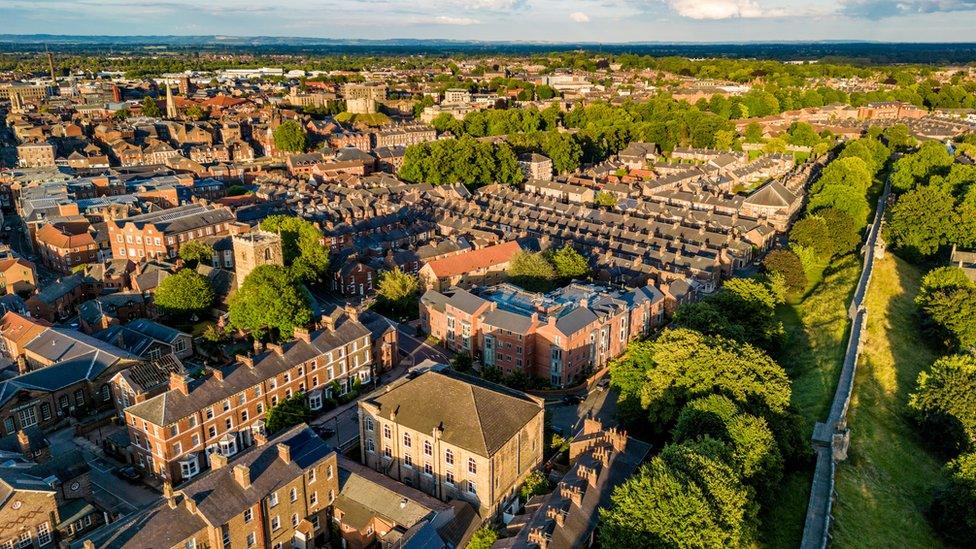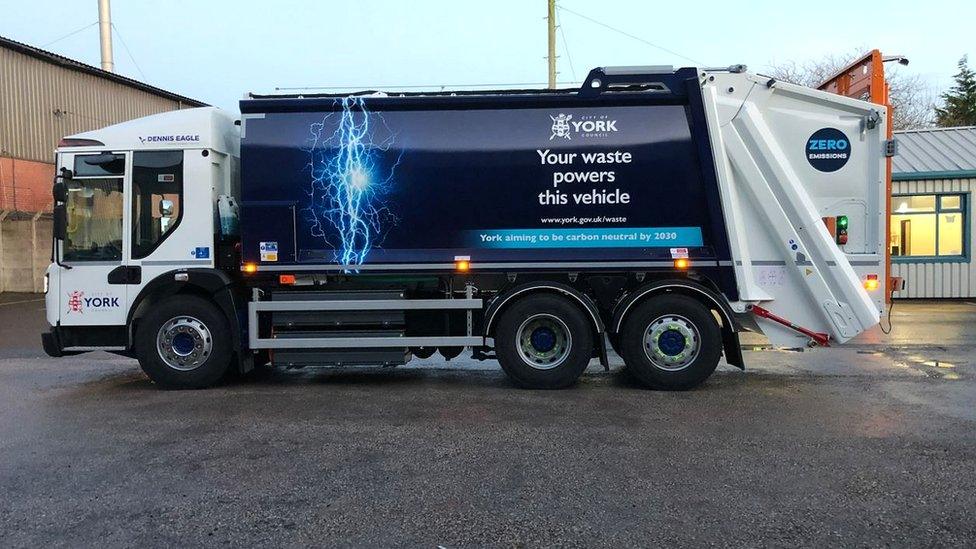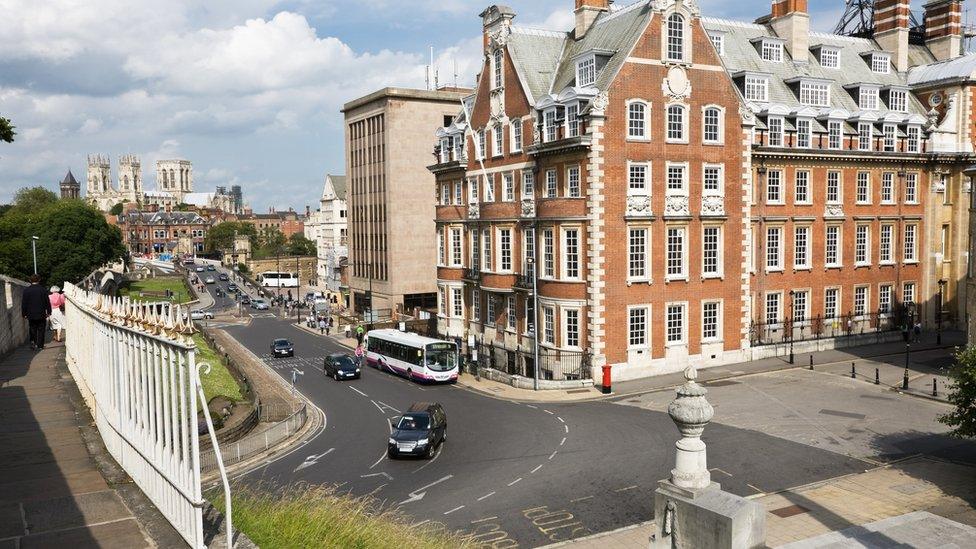Working from home produces 13% of York Council's CO2 emissions - report
- Published

A report by City of York Council said an estimated 723 tonnes of carbon dioxide was produced by people working from home in 2022/23
More than 13% of a council's CO2 emissions come from staff working from home, a survey has found.
A report by City of York Council said an estimated 723 tonnes of carbon dioxide was produced in 2022-23.
It was caused by home workers using office equipment, lighting and heating during the day, the report said.
Working from home produced far more emissions than staff commuting and business travel put together, the findings revealed.
However, it was not as much as the greenhouse gas emissions from heating council buildings at 2,607 tonnes, or from its fleet of vehicles which produced 1,669 tonnes.
According to the Local Democracy Reporting Service, councillor Kate Ravilious told a meeting that the homeworking CO2 figure "was a surprisingly large chunk" and asked what more the council could do.

Councillor Kate Ravilious described the homeworking CO2 emissions as "a surprisingly large chunk"
In response, Shaun Gibbons, head of carbon reduction at the council, said the NHS produced a report during the Covid pandemic "which compared people working from an office with working from home and which direction would be best to reduce emissions".
"The answer wasn't simple," he said.
"It's very dependent on the time of the year, how far people generally travel to their workplace, the availability of public transport to get to their workplace.
"The inclusion of staff commuting and home working has shown areas where improvements can be made and we're in the process of updating our council travel plan with suggestions of reducing emissions associated with staff travel and homeworking."
The report also shows comparable emissions have reduced by almost 10% between 2021-22 and 2022-23, as the council aims to be net-zero city by 2030.

Follow BBC Yorkshire on Facebook, external, X (formerly Twitter), external and Instagram, external. Send your story ideas to yorkslincs.news@bbc.co.uk, external.
- Published1 September 2023

- Published18 July 2023

- Published23 January 2023

- Published31 December 2019
